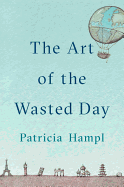
As a child preparing for her first confession, essayist Patricia Hampl (The Florist's Daughter) learns from the Examination of Conscience that daydreaming is a sin. "I don't hesitate. I throw my lot with the occasion of sin. I already know (or believe--which comes to the same thing in my Catholic worldview) that daydreaming doesn't make things up. It sees things...."
Decades later, she had her first panic attack. In the aftermath, she rested, and remembered the pleasure of her childhood daydreams. She returns to what she's read of Michel de Montaigne, the 16th-century French inventor of the essay, whose work tried on idle thoughts, wandering from one to the next, to see where they would go.
This is not a linear memoir, but rather, as she says of another book, "a meandering bunch of narrative snippets and essays." She travels to visit friends in the Czech Republic and to the homes of writers she's loved--the Ladies of Llangollen, Gregor Mendel and Montaigne. One thought inspires another: books she loves, her fascination with nuns, her writing life, family stories and her new widowhood after a long, happy marriage.
"Life is not a story, a settled version. It's an unsorted heap of images we keep going through... that float to the surface of the mind, rise, drift--they are the makings of a life, not of a narrative." This is an enjoyable, idiosyncratic journey of a book, the kind that recommends many other books and places, and that may inspire readers to some similar thoughtful wanderings of their own. --Sara Catterall

